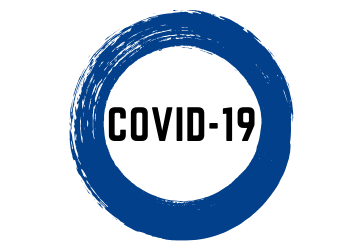UPDATE 3/27/2020
A historic $2 trillion economic recovery package was sent to the president’s desk for signature after House lawmakers passed the bipartisan bill Friday afternoon.
The legislation, known as the CARES Act, is the third aid package from Congress during the growing coronavirus pandemic.
This relief package includes direct payments to Americans, an aggressive expansion of unemployment insurance and billions in business loans and aid to hospitals.
UPDATE 3/26/2020:
The Senate overwhelmingly passed a massive $2 trillion stimulus package late Wednesday that’s meant to soften the economic blow of the coronavirus pandemic for American workers and businesses. The House is scheduled to vote on the bill on Friday, 3/27/2020
UPDATE 3/18/2020: President Trump signed the latest coronavirus aid package into law Wednesday evening.
UPDATE 3/18/2020: The Senate approved a new round of emergency funding to address the coronavirus pandemic, sending the legislation to President Trump, who is expected to sign it soon. The chamber overwhelmingly approved the relief bill by a vote of 90-8.
By a vote of 363 – 40 on Saturday (3/14), the House passed an updated version of H.R. 6201, the Families First Coronavirus Response Act, that includes provisions protecting nonprofits (see summary). The Senate is expected to vote on the bill Monday, 3/16/2020.
The bill was negotiated Friday by Speaker Pelosi and Treasury Secretary Mnuchin of the past two days. It provides free testing for COVID-19, $2 billion in unemployment assistance, $1 billion in food aid, and increased federal funding for Medicaid. It also suspends the SNAP work requirements and grants grater waiver authority to the states during the crisis.
The bill includes mandated paid sick and family leave, which are explained in more detail here:
Emergency Paid Sick Leave (Section 5102): The bill requires employers to provide employees two weeks of paid sick leave, paid at the employee’s regular rate, to quarantine or seek a diagnosis or preventive care for the coronavirus. It also requires payment at two-thirds the employee’s regular rate to care for a family member for those purposes or to care for a child whose school has closed, or child care provider is unavailable, due to the coronavirus. Section 7001 provides to employers a refundable tax credit equal to 100 percent of qualified paid sick leave wages paid by an employer. The tax credit is allowed against the employer portion of payroll taxes and any paid leave costs that exceed the amount of payroll taxes owed will be refundable to the employer at the end of each quarter.
Emergency Family and Medical Leave Expansion (Section 3102): The bill also expands the number of workers who can take up to 12 weeks of leave under the Family and Medical Leave Act. After the two weeks of paid leave, employees will receive a benefit from their employers that will be no less than two-thirds of the employee’s usual pay. The qualifying reasons for the emergency leave are a current diagnosis of COVID-19, self-quarantine, caring for another person with the disease or who is under quarantine, or caring for a child due to COVID-19 related closing of school, or other care facility. Section 7003 of the bill provides a refundable tax credit equal to 100 percent of qualified family leave wages paid by an employer for each calendar quarter, allowed against the employer portion of payroll taxes.
Importance of the Refundable Payroll Tax Credit: The application of the credit to nonprofits is a significant development. Typically, Congress enacts income tax credits for employers, which are incentives that tax-exempt employers are not able to redeem since they don’t pay income taxes. The new provision in the bill on the House floor Saturday morning will ensure that all types of employers (with 500 or fewer employees) are able to recoup the costs of these paid leave mandates. The emergency paid leave benefit (Section 5102) and of the credits (Sections 7002 and 7003) expire on December 31, 2020.

